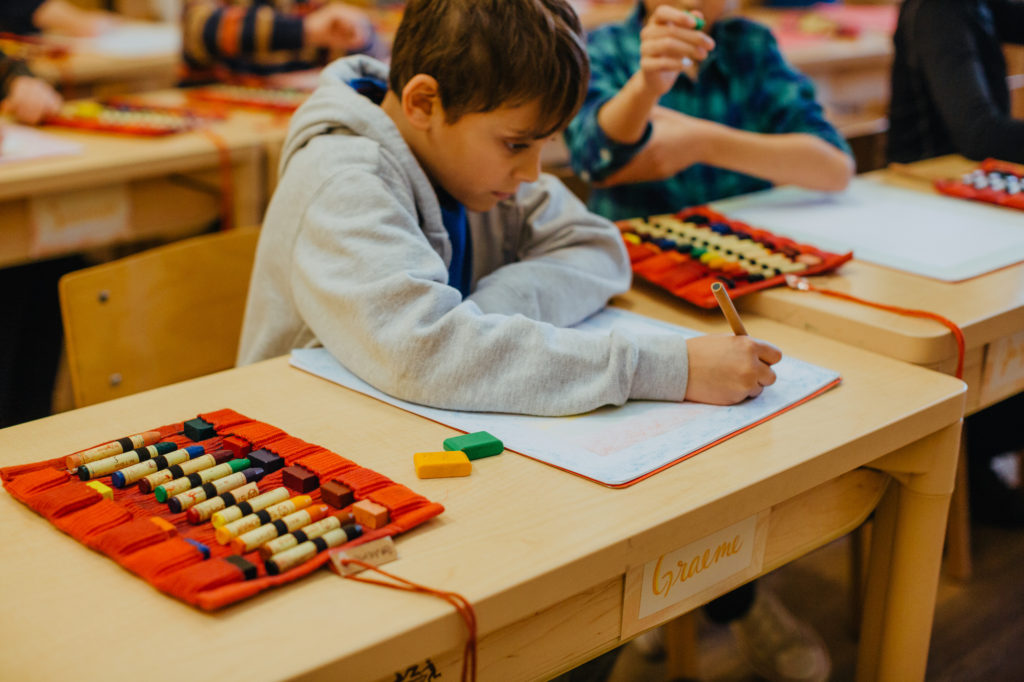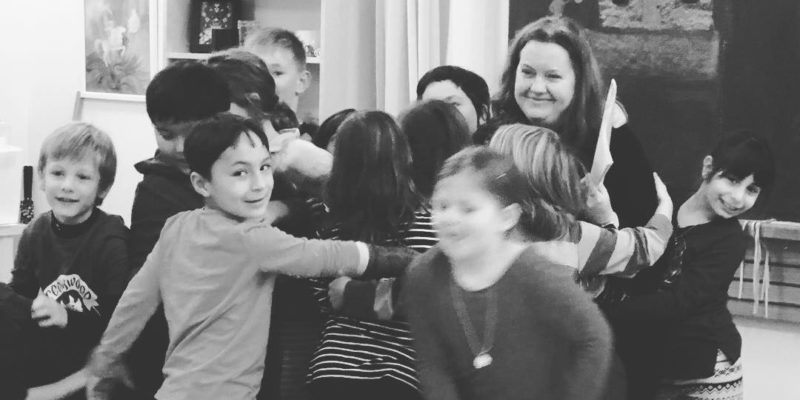Some of you may know that I went back to school at the beginning of this school year to get my master’s degree in Strategic Communication. I’ve been loving it — enjoying being in school again, mostly — and I’ve been interacting with lots of people who work out there in the real world. (Shall we call them muggles?😉)
Every time my fellow classmates and I talk about our work, I remember that one of the things I love most about being a Waldorf teacher is that it is a profession that is dedicated to the growth of the human being. I love that my workplace is an institution that is committed to facilitating the growth of individuals — students, teachers, staff, community members — we’re all about giving each other opportunities for growth.
Sign up for my free virtual Waldorf Classroom Management Workshop
Three Classroom Management Strategies Every Waldorf Teacher Should Know
There have been times in my work with schools when school leadership has been in a position to ask if a teacher or staff member is capable of the task that lies ahead. It is in these moments when we most need to remind ourselves of our commitment to fostering growth. The moment we question another’s capacity, we limit their potential.
And we are not in the business of limiting someone’s growth potential.
Growth Mindset at the Waldorf School
Quite the opposite, actually. Our mandate is to foster the growth of others, and the best way to do that is to present them with challenges, ensure that it’s safe for them to take risks (and even fail), and let them go for it.
So, there are two factors under our control here:
- Present challenges.
- Create a safe environment.
And if we’re committed to fostering the growth of all individuals, we really need to think about doing these things both in our classroom and in the school as a whole.
Growth Mindset in the Classroom
There are plenty of ways I think about doing this in the classroom. I actually spend a good amount of time thinking about presenting just the right challenges and just the right environment.

I’ve posted a lot about this in the past, and even recorded some podcasts. But some basic ideas that I think about are:
- Use language that normalizes the struggle.
- Encourage kids to engage with challenges.
- Use the word “yet.” “You can’t do double-dutch, yet.”
- Demonstrate and celebrate mistakes.
- Tout the value of difficult tasks.
- Set goals.
- Praise hard work, not intelligence.
Okay, now imagine extending those ideas to the adult workplace. When was the last time someone celebrated a mistake that you made?
The truth of it is that as we get older we make fewer mistakes, so we get far less comfortable with allowing them to happen.
We adults are far more likely to think about our skills as accomplishments that are intrinsically tied to who we are, rather than what we do.
Growth Mindset in the School
So, if you’re truly an advocate for the growth of the human being — all human beings — I challenge you to demonstrate that commitment in all of your professional work.
What does it look like to cultivate a growth mindset with the adults at your school? Here are some ideas:
- Openly share your struggles and mistakes, instead of pretending that you’ve got it all figured out.
- Appreciate others for courageously taking risks, instead of silently judging them for getting in over their head.
- Encourage school leadership to hire teachers at different points on the career path, instead of insisting on hiring only experienced teachers.
- If you are one of the experienced teachers at your school, take on challenges you’ve never faced before. Beware falling into a rut and sticking with tasks and approaches you know work.
Even as I write those things, I’m asking myself, “Can’t it just be easy?” The honest answer is that no, it can’t just be easy. Growth is the human mandate, and growth ain’t easy.
And when it comes down to it, we’re lucky to be part of a profession and movement that recognizes the value and importance of encouraging human growth.
So dig in and do your best to appreciate the opportunity.




Leave a Reply